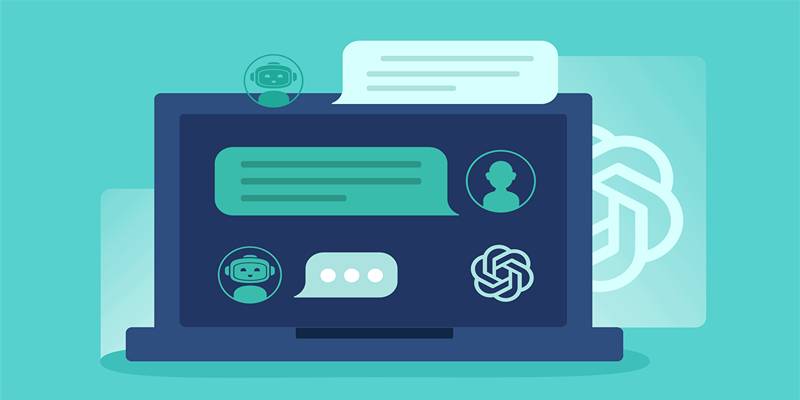Businesses are turning more and more to AI product integrations to speed up processes and make them more efficient in today's fast-paced, tech-driven world. Artificial intelligence (AI) isn't just limited to isolated tools anymore. It's being built into more and more platforms and systems, making them work better together and making processes more efficient. From automating repetitive tasks to improving decision-making, AI product integrations are stepping up and playing a critical role in shaping modern business operations.
This post will talk about how integrating AI products is changing workflows in many different fields, how these changes are helping companies, and what the future holds for AI in automating and increasing productivity at work.
The Rise of AI Product Integrations
Over the past decade, AI technology has progressed rapidly, expanding beyond research labs and into real-world applications. Initially, AI systems were designed as stand-alone tools that could perform specific tasks—be it natural language processing, image recognition, or data analysis. However, the growing demand for efficiency and interconnected systems has led to the development of AI product integrations that combine the power of AI with various existing platforms, software, and services.
Rather than working in isolation, AI is now being integrated into core business systems, such as customer relationship management (CRM) tools, project management platforms, marketing software, and even human resources (HR) systems. These integrations allow AI to seamlessly interact with different aspects of a business, making workflows more efficient, reducing human error, and improving overall productivity.
Several key factors drive the rise of AI product integrations:
- The need for efficiency: Businesses are looking for ways to save time and streamline their operations.
- Increasing data complexity: The sheer volume and complexity of data being generated require AI to help businesses make sense of it.
- Demand for automation: AI is now automating many tasks that used to be done by hand and took a lot of time. It frees up workers to work on more important tasks.
Benefits of AI Product Integrations

AI product integrations bring numerous benefits to businesses of all sizes. By incorporating AI into existing workflows, companies can unlock new levels of efficiency and effectiveness. Here are some of the top advantages of AI integrations:
Automation of Repetitive Tasks
One of the most significant advantages of AI product integrations is the ability to automate repetitive tasks. These tasks often consume valuable employee time and can be prone to human error. By integrating AI into routine business operations, such as scheduling, invoicing, data entry, and customer support, businesses can reduce the burden on employees and free them up to focus on more strategic work.
For example:
- Email marketing platforms can integrate AI to automate personalized email campaigns based on customer behavior.
- CRM systems can use AI to automatically categorize leads and provide personalized follow-up recommendations.
- Customer support chatbots powered by AI can resolve common customer queries and direct more complex issues to human agents.
This AI-driven automation not only saves time but also increases the accuracy and consistency of tasks, leading to higher-quality outputs.
Improved Data Analysis and Decision-Making
AI excels at processing and analyzing large datasets, providing valuable insights that would be difficult or impossible to obtain through manual methods. By integrating AI into data management and analysis platforms, businesses can make more informed decisions faster and with greater accuracy.
For example:
- Sales teams can use AI integrations to analyze customer data and generate predictive sales forecasts.
- Marketing departments can leverage AI to segment customers and create highly targeted campaigns.
- Finance teams can use AI to analyze financial trends and suggest cost-cutting measures or investment opportunities.
AI product integrations enable businesses to gain a deeper understanding of their data and turn that information into actionable insights. It enhances decision-making and helps companies stay ahead of the competition.
Enhanced Customer Experience
AI is transforming customer interactions by enabling businesses to provide more personalized and efficient service. Integrating AI into customer service systems, such as live chat or helpdesk software, allows businesses to provide instant support and resolve issues faster.
For example:
- Chatbots powered by AI can provide customers with immediate responses to frequently asked questions, reducing wait times and improving satisfaction.
- AI-driven recommendation systems can suggest products or services based on customer preferences, improving the overall shopping experience.
- Customer feedback analysis tools integrated with AI can automatically identify trends and sentiment, allowing businesses to adjust their offerings in real-time.
These AI-powered systems provide customers with quick and personalized interactions, improving overall satisfaction and loyalty.
Streamlined Collaboration and Communication

In today’s hybrid and remote work environments, collaboration and communication are more important than ever. AI product integrations are helping businesses improve communication by automating tasks, providing real-time insights, and making it easier to share information across teams.
For example:
- Project management software integrated with AI can automatically update team members on project progress, assign tasks based on workload, and provide suggestions for improving efficiency.
- Collaboration platforms like Slack or Microsoft Teams can integrate AI to analyze conversations and suggest relevant documents, files, or follow-up actions.
- Video conferencing tools can leverage AI to transcribe meetings, summarize key points, and automatically generate action items.
By integrating AI into communication and collaboration tools, businesses can ensure that teams are always on the same page, no matter where they are working.
Conclusion
AI product integrations are undoubtedly transforming how businesses operate, driving efficiency and improving productivity across various sectors. By automating repetitive tasks, enhancing decision-making with data insights, and delivering personalized customer experiences, AI is becoming an indispensable part of modern workflows.
These integrations allow businesses to not only save time but also improve the quality of their outputs, stay competitive, and foster better collaboration across teams. As AI continues to evolve, its role in business operations will only expand, providing new opportunities for innovation.











